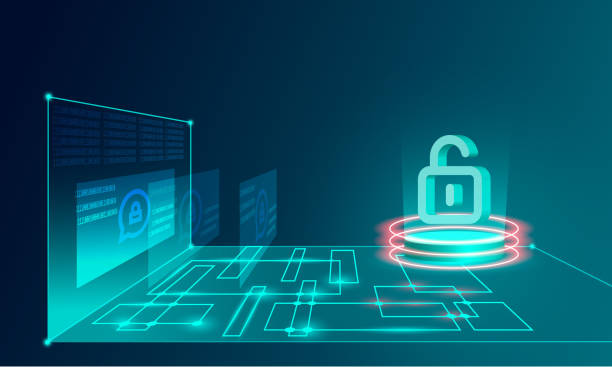
The Rise of Cybersecurity-as-a-Service: A Game-Changer for Startups
As cyber threats evolve, startups face mounting security risks. Cybersecurity-as-a-Service (CaaS) offers scalable, cost-effective, and expert-driven solutions that level the playing field, enabling small businesses to compete with larger enterprises securely.
✨ Raghav Jain

Introduction
In today's digital age, startups are more vulnerable to cyberattacks than ever before. The increasing frequency of data breaches, ransomware attacks, and phishing campaigns has forced organizations, regardless of size, to prioritize cybersecurity. However, for many startups, investing in an in-house cybersecurity team with the necessary expertise and resources can be cost-prohibitive. This is where Cybersecurity-as-a-Service (CaaS) has emerged as a game-changer.
Cybersecurity-as-a-Service provides startups with access to cutting-edge security technologies, expert services, and continuous monitoring—all without the overhead costs associated with traditional cybersecurity infrastructure. By outsourcing their security needs to specialized service providers, startups can focus on growing their businesses while ensuring their digital assets and sensitive data remain protected.
In this article, we’ll explore the rise of CaaS, how it benefits startups, and why this model is becoming an essential part of the modern cybersecurity landscape.
The Growing Threat Landscape for Startups
Cybersecurity Challenges for Startups
Startups are often seen as low-hanging fruit for cybercriminals due to their lack of robust security measures and limited resources. A 2024 study found that nearly 60% of small businesses face a cyberattack within their first year of operation, with many startups not having the necessary infrastructure to defend against these threats. Common challenges faced by startups include:
- Limited Resources: Unlike larger enterprises, startups typically do not have dedicated cybersecurity teams or budgets to invest in advanced security tools.
- Lack of Expertise: Many startups do not possess the in-house expertise to effectively mitigate complex cyber threats, leaving them vulnerable to attacks.
- Regulatory Compliance: With the growing emphasis on data privacy regulations like GDPR, CCPA, and HIPAA, startups must ensure they are compliant without the resources to handle such obligations effectively.
As cyber threats become more sophisticated and frequent, startups are realizing the importance of investing in cybersecurity. However, the traditional approach of building a dedicated security team or purchasing expensive software can be both daunting and expensive. This is where Cybersecurity-as-a-Service (CaaS) provides a solution.
What is Cybersecurity-as-a-Service?
Defining CaaS
Cybersecurity-as-a-Service (CaaS) refers to a comprehensive suite of managed cybersecurity solutions offered by third-party vendors, which are tailored to meet the needs of organizations without the need for in-house infrastructure. CaaS providers deliver a range of security services such as:
- Managed Detection and Response (MDR): Continuous monitoring of networks for potential threats, including real-time alerts and automated responses.
- Endpoint Security: Protection for devices like laptops, smartphones, and tablets, ensuring they are secure from malware and unauthorized access.
- Vulnerability Management: Scanning systems to identify and address vulnerabilities before they can be exploited by cybercriminals.
- Incident Response: Support in identifying, managing, and mitigating the effects of cyberattacks or data breaches.
- Compliance and Risk Management: Assistance in meeting industry regulations and reducing the risks associated with cybersecurity threats.
Key Benefits for Startups
The rise of CaaS offers several benefits for startups that make it an attractive alternative to traditional cybersecurity solutions:
- Cost-Effective Security: Startups can access enterprise-grade cybersecurity tools and services without the high upfront costs. Instead of purchasing expensive software or hiring a full-time security team, startups can pay for services on a subscription basis, which is more affordable.
- Expertise at Scale: Startups gain access to cybersecurity experts with years of experience, ensuring that they are protected from a wide range of sophisticated attacks. These experts also stay updated on emerging threats, providing proactive protection.
- Scalability: CaaS solutions are scalable, meaning startups can easily upgrade or downgrade their services based on their changing needs. As startups grow, their cybersecurity services can evolve without the need to invest in additional infrastructure.
- Faster Response Times: With managed services, startups benefit from around-the-clock monitoring and rapid response times in the event of a cyberattack or security incident. This helps minimize downtime and potential losses.
How CaaS Levels the Playing Field for Startups
Closing the Cybersecurity Gap
Startups often lack the resources to implement the same level of security infrastructure as larger organizations. In many cases, larger enterprises can afford to have entire teams dedicated to managing cybersecurity, with significant investments in tools, technologies, and compliance efforts. In contrast, startups often operate on tight budgets, making it difficult to stay ahead of the evolving cyber threat landscape.
CaaS levels the playing field by providing startups with access to the same high-quality security services available to larger organizations. With CaaS, startups can benefit from:
- Advanced Technologies: Startups gain access to the latest cybersecurity technologies, including AI-powered threat detection, machine learning, and automated security systems that would be too expensive for them to implement on their own.
- Expert-Driven Insights: Through CaaS, startups can tap into the expertise of seasoned cybersecurity professionals, helping them make informed decisions about their security posture.
- Proactive Threat Mitigation: CaaS providers monitor systems 24/7, offering early detection and automated responses to potential threats. This proactive approach reduces the risk of a breach and minimizes downtime.
The Cost of Cyberattacks for Startups
The Financial and Reputational Impact
For startups, the cost of a cyberattack can be devastating. Beyond the immediate financial damage of a data breach or ransomware attack, startups face long-term consequences including:
- Financial Loss: Cyberattacks can lead to significant direct costs, including ransom payments, legal fees, and fines. The average cost of a data breach in 2024 is $4.45 million, with small businesses often facing the brunt of these costs.
- Reputation Damage: Data breaches or cyberattacks erode customer trust. For startups that rely on customer relationships to grow, a damaged reputation can be difficult, if not impossible, to repair.
- Compliance Fines: Startups that fail to comply with data privacy regulations such as GDPR, HIPAA, or CCPA can face hefty fines and penalties. These fines can be especially debilitating for startups that are still trying to find their footing in the market.
CaaS helps mitigate these risks by providing startups with continuous monitoring, proactive vulnerability management, and swift incident response, reducing the impact of any potential attack.
The Role of AI and Machine Learning in CaaS
Intelligent Threat Detection and Response
As cyber threats become more sophisticated, relying solely on traditional security measures is no longer enough. The integration of Artificial Intelligence (AI) and Machine Learning (ML) into CaaS is enhancing the ability to detect and respond to threats in real time.
- AI-Powered Threat Detection: AI systems can process vast amounts of data quickly and detect anomalies that may indicate an impending cyberattack. These systems are capable of identifying new, previously unseen threats, allowing for faster responses and more accurate detection.
- Predictive Security: Machine learning algorithms can be trained to recognize patterns in data and predict potential vulnerabilities. By analyzing past incidents, ML can forecast where future threats may occur and provide advanced warnings to prevent attacks.
- Automated Incident Response: AI and ML enable automated responses to common cybersecurity incidents, allowing CaaS providers to respond to threats without human intervention. This reduces the time it takes to mitigate attacks and reduces the overall damage caused.
Case Study: Startups Benefiting from CaaS
Example: A FinTech Startup
A fintech startup, "SecurePay," was growing rapidly but struggled to manage cybersecurity in-house due to limited resources. They turned to a CaaS provider to handle their security needs. The provider implemented a comprehensive security solution, including continuous monitoring, vulnerability management, and an incident response plan. When SecurePay faced a ransomware attack, the CaaS provider was able to detect the threat in real time, stop the attack before it spread, and restore the affected systems without any data loss. The startup was able to continue operations with minimal disruption, saving significant time and money.
Cybersecurity-as-a-Service vs. Traditional In-House Security Models
While there’s no doubt that in-house security teams have their advantages, particularly for large enterprises with extensive security needs, there are significant benefits to CaaS models, especially for startups.
1. Flexibility and Scalability
One of the key advantages of CaaS is its flexibility. As startups grow, so do their security needs. Unlike traditional security solutions, which often require significant investment to scale, CaaS allows startups to easily add or remove services depending on their requirements. Whether a startup needs to expand its network security, add additional endpoint protection, or strengthen compliance measures, CaaS providers can scale quickly and seamlessly.
Traditional in-house teams, on the other hand, often struggle with scalability. Hiring new staff, purchasing additional hardware, and training personnel to handle more complex tasks takes time and can be costly. CaaS provides a much more agile solution, allowing startups to adapt quickly to changing business conditions and threats.
2. Specialized Expertise
Cybersecurity is a highly specialized field. With threats becoming more sophisticated and varied, it’s increasingly important for organizations to have access to experts who are constantly monitoring for vulnerabilities and emerging threats. A CaaS provider can offer a broad range of specialized services, from threat hunting and vulnerability assessments to incident response and compliance management.
Building an in-house team with the depth and breadth of knowledge required to handle these specialized functions is not only expensive but also time-consuming. It can take months or even years to develop a team that has the expertise to keep up with the constantly evolving cybersecurity landscape. CaaS providers, however, already have these professionals in place, ensuring that startups benefit from the latest security strategies and best practices.
3. Reduced Overhead Costs
Maintaining an in-house cybersecurity team often comes with high operational costs, including salaries, benefits, training, and the purchase and upkeep of security software and infrastructure. For startups, these costs can be prohibitive and may divert funds from other critical business functions.
By contrast, CaaS providers offer a cost-effective, pay-as-you-go model that allows startups to access top-notch security services without the significant financial burden. Many CaaS providers offer customizable packages to meet the specific needs of the startup, ensuring that only necessary services are included. This model helps reduce unnecessary overhead costs and provides a predictable monthly expense for cybersecurity services.
The Growing Importance of Compliance and Regulatory Challenges
As the digital landscape continues to evolve, compliance with data protection regulations has become a significant concern for businesses of all sizes. Startups, in particular, are often at risk of non-compliance due to their limited resources and lack of cybersecurity expertise. Whether it’s the European Union’s General Data Protection Regulation (GDPR), the California Consumer Privacy Act (CCPA), or industry-specific regulations like HIPAA for healthcare, the consequences of non-compliance can be severe.
CaaS providers offer crucial support in helping startups navigate the maze of regulations. Many CaaS platforms are equipped with built-in compliance management features, ensuring that businesses stay on top of evolving requirements. These providers also offer regular audits, risk assessments, and tailored compliance strategies, which can save startups time, effort, and potential legal issues down the road.
In many industries, failure to comply with regulatory requirements can result in costly fines and damage to a startup's reputation. By leveraging CaaS, startups can maintain compliance while focusing on their core business operations.
Looking Ahead: What’s Next for Cybersecurity-as-a-Service?
The future of CaaS looks promising, with several exciting developments on the horizon. As the cybersecurity landscape becomes more complex, the need for managed services will continue to grow, particularly in sectors like fintech, healthcare, and e-commerce. The following trends are expected to shape the future of CaaS:
1. Integration of AI and Automation
Artificial Intelligence and automation are expected to play an even larger role in CaaS offerings moving forward. As cyber threats become more advanced, AI-powered tools will be essential in detecting and mitigating attacks in real time. CaaS providers will increasingly integrate AI to enhance threat detection, incident response, and predictive analytics.
Automating key cybersecurity tasks, such as vulnerability scanning and patch management, will not only improve efficiency but also help reduce human error. For startups, this means faster, more accurate protection with less manual intervention.
2. Focus on Security for the Remote Workforce
The shift to remote work, accelerated by the COVID-19 pandemic, has introduced new security challenges. Startups are now tasked with protecting a distributed workforce that accesses company data from various devices and locations. CaaS providers will continue to refine their solutions to address the unique needs of remote workforces, offering tools like Virtual Private Networks (VPNs), secure endpoint management, and Zero Trust Architecture to ensure that every connection is authenticated and authorized.
3. Expansion into New Markets
As CaaS becomes more established in the startup ecosystem, it’s expected to expand into new markets, particularly in developing countries where cybersecurity resources may be scarce. CaaS can offer scalable, affordable solutions that cater to businesses of all sizes, empowering startups in emerging markets to safeguard their operations and grow securely.
Conclusion
The rise of Cybersecurity-as-a-Service (CaaS) is transforming the way startups approach cybersecurity, offering a cost-effective, scalable, and expert-driven solution to the ever-growing threat landscape. Traditionally, startups struggled to access high-quality cybersecurity resources due to budget constraints and a lack of in-house expertise. With CaaS, however, startups can leverage enterprise-grade security tools and services, allowing them to protect their data, reputation, and bottom line without the financial burden of maintaining an in-house security team.
By outsourcing their security needs to specialized providers, startups benefit from continuous monitoring, expert advice, and the latest advancements in technology, including AI and machine learning. As the cybersecurity landscape becomes more complex with the proliferation of digital technologies and remote work, the demand for flexible and reliable security solutions will continue to rise.
CaaS not only enables startups to safeguard themselves against cyber threats but also helps them remain compliant with growing data protection regulations and manage risks efficiently. The future of cybersecurity will undoubtedly involve greater integration of automation, AI, and proactive threat mitigation, and CaaS providers are well-positioned to lead this charge.
Startups that embrace CaaS will find themselves on a more secure footing in a digital-first world. With reduced operational costs, expert-driven solutions, and continuous scalability, CaaS is indeed a game-changer, enabling small businesses to thrive in an increasingly hostile cyber environment.
Q&A Section
Q: What exactly is Cybersecurity-as-a-Service (CaaS)?
A: CaaS is a managed service that provides startups with cybersecurity solutions, including threat detection, incident response, and compliance management, without requiring in-house security infrastructure or personnel.
Q: Why are startups more vulnerable to cyberattacks?
A: Startups often lack the resources to invest in robust security systems and the in-house expertise needed to handle sophisticated cyber threats, making them attractive targets for cybercriminals.
Q: How can CaaS benefit startups in terms of cost?
A: CaaS offers a subscription-based pricing model, making high-quality cybersecurity services more affordable for startups, without the need for significant upfront investments in hardware, software, or personnel.
Q: How does CaaS improve scalability for startups?
A: CaaS providers offer scalable services, allowing startups to easily upgrade or adjust their security infrastructure as their needs grow, without having to invest in new hardware or hire additional staff.
Q: What is the role of AI in CaaS?
A: AI is used in CaaS to enhance threat detection, automate responses, and predict potential vulnerabilities, allowing for faster, more accurate protection against cyberattacks.
Q: How does CaaS help startups with regulatory compliance?
A: CaaS providers assist startups in staying compliant with data protection regulations such as GDPR, CCPA, and HIPAA by offering built-in compliance management, audits, and guidance on best practices.
Q: Can CaaS protect against advanced cyber threats like ransomware?
A: Yes, CaaS providers offer real-time threat monitoring, proactive defense measures, and incident response strategies to mitigate the impact of ransomware attacks and other advanced threats.
Q: Why should startups consider CaaS instead of building an in-house security team?
A: CaaS provides startups with access to expert security professionals, cutting-edge technologies, and round-the-clock monitoring without the high cost and complexity of building and maintaining an in-house team.
Q: How does CaaS handle remote work security?
A: CaaS solutions are designed to secure remote workforces by providing tools like secure VPNs, endpoint protection, and Zero Trust Architecture, ensuring all devices and connections are securely authenticated.
Q: What makes CaaS a long-term solution for startups?
A: CaaS is a sustainable long-term solution due to its scalability, continuous updates, expert-led service, and cost-effectiveness, allowing startups to stay ahead of evolving cybersecurity threats as they grow.
Similar Articles
Find more relatable content in similar Articles

Cloud PCs: Will Your Next Comp..
Cloud PCs are transforming the.. Read More

Digital Privacy in 2025: How S..
In 2025, digital privacy faces.. Read More

Digital inclusion: designing d..
Designing technology for elder.. Read More

From Phishing to Data Theft: ..
Cybercrime in India is evolvi.. Read More
Explore Other Categories
Explore many different categories of articles ranging from Gadgets to Security
Smart Devices, Gear & Innovations
Discover in-depth reviews, hands-on experiences, and expert insights on the newest gadgets—from smartphones to smartwatches, headphones, wearables, and everything in between. Stay ahead with the latest in tech gear
Apps That Power Your World
Explore essential mobile and desktop applications across all platforms. From productivity boosters to creative tools, we cover updates, recommendations, and how-tos to make your digital life easier and more efficient.
Tomorrow's Technology, Today's Insights
Dive into the world of emerging technologies, AI breakthroughs, space tech, robotics, and innovations shaping the future. Stay informed on what's next in the evolution of science and technology.
Protecting You in a Digital Age
Learn how to secure your data, protect your privacy, and understand the latest in online threats. We break down complex cybersecurity topics into practical advice for everyday users and professionals alike.
© 2025 Copyrights by rTechnology. All Rights Reserved.